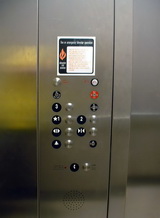Residential Elevators
Residential elevators are used today to assist the disabled, elderly and others who have mobility problems to move freely about their homes. These elevators can be installed in homes giving much more freedom of movement to anyone who typically has trouble traveling up and down stairs. You should also understand that the housing industry considers residential elevators to be a luxury item. This means that having one installed on your home will substantially increase the overall value of your home.
Differences in Residential Elevators
If you are planning to purchase and have a residential elevator installed in your home you should understand the various differences in design and motion. The most traditional type of home elevator uses a hydraulic movement. Hydraulic elevators require cables and pistons to move the elevator car between floors. Vacuum and pneumatic home elevators are also available today that use different movement. Choosing among the many will depend on your specific needs as well as your space availability and the cost that you are willing to pay.
Choosing the Right Elevator
Again, residential elevators come in many sizes and types as well as costs. Choosing the right elevator for your home will depend on your budget as well as your specific needs. Some elevators are a bit larger than others and are designed to easily accommodate two or more people or wheelchairs and other devices. When choosing residential elevators you should also consider the distance that you will need to travel from one floor to another. Vacuum elevators are typically only designed to travel four stories or less while hydraulic elevators are used in many high rise buildings. Of course, a home elevator does not need to travel multiple stories but there may be a few differences in the types and how they will accommodate the footage area between stories. Be sure to check the distance between the floors in your home to help you to choose the most convenient and most durable home elevator.
Technical Points to Consider
You also need to check the requirements for installation for the different types of residential elevators. If a certain type requires more space than what you have available then it naturally will not be the best choice for you. Hydraulic elevators typically require a basement for the machine room or the space that is used to hold the pistons and other needed equipment. If you do not have space available then you may have to pay additional costs to have your home remodeled to fit the elevator and its needed equipment.
Cost
When it comes to choosing residential elevators comparing costs can be very beneficial. While you want to ensure that you receive a durable and high quality elevator, there is simply no reason why you should spend thousands of dollars if you do not have to do so. Check around with various manufacturers and retailers to get an idea of the average cost and then do a few comparisons with different companies to get your residential elevator at the lowest cost available to you.

